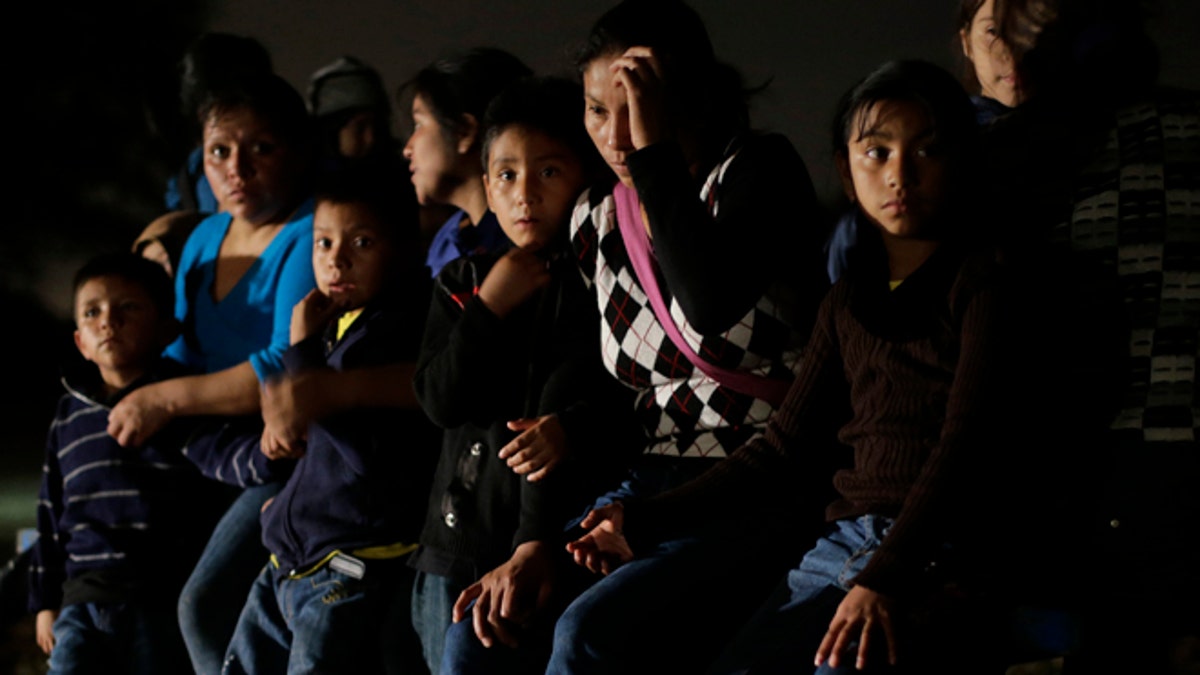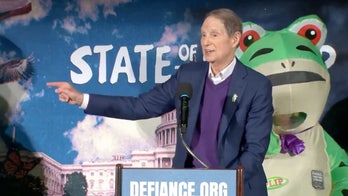
Group of immigrants from Honduras and El Salvador are stopped in Granjeno, Texas, on June 25, 2014. (ap)
In 2010, the immigration reform train had as its conductor undocumented immigrants who came as minors and who became known as DREAMers.
The DREAMers, many of them raised in the United States, transformed the dynamics of immigration politics, giving it a face by standing in front of television cameras and identifying themselves fully – first and last name – as they argued for a path to legal status. The House of Representatives actually passed a bill that would have given DREAMrs a path to legal status, but the effort failed in the Senate.
In 2012, a new conductor took over — the presidential elections. Though some conservatives were steadfast in objecting to providing a path to legal status to undocumented immigrants, many Republicans and most Democrats in Congress seemed to be going somewhere. The Senate passed a bipartisan measure that, among other things, tightened border security while also giving some kind of break to undocumented immigrants who met a strict set of criteria, including learning English, having no criminal record, and paying fines.
“There was a huge opening for comprehensive immigration reform,” said Frank Sharry, the executive director of America’s Voice, which advocates for more lenient immigration policies. “There was a drumbeat of a majority of Republicans and some conservative leaders saying the time has come to do immigration reform.”
Last summer, the country seemed closer than ever to undergoing a sweeping overhaul of its immigration system.
But the Senate bill stalled in the House, with conservatives vowing to torpedo any effort to give legal status, or amnesty, to undocumented immigrants.
All the while, a new force in the immigration debate was gaining momentum down south, though it was not making headlines and was not discussed in the halls of Congress: thousands of youths were appearing at the U.S.-Mexico border unaccompanied by an adult, and were turning themselves over to Border Patrol agents.
A few weeks ago, their numbers reaching a remarkable 60,000 since October, the kids from Central America barreled into the headlines and became the new face of U.S. immigration.
They also transformed the immigration debate – for the moment, at least. Where last year providing a path to legal status seemed a viable – indeed even necessary – part of any serious discussion on how to reform the flawed immigration system, these days the focus is on enforcement and cracking down on those who break the law.
Many Republicans are pushing for measures that will reinforce security at the border and expedite the process for returning the Central American immigrants to their homelands.
U.S. Rep. Luis Gutierrez, a Democrat from Illinois who has been one of Congress’s most vocal proponents for a measure that would include a path to legal status, says that all the events that seize headlines and take immigration into a new direction – be it DREAMers, unaccompanied minors or September 11 – are actually connected.
“They’re all inter-related, one with the other,” Gutierrez said. “They are all manifestations of the broken immigration system” and the failure of Congress and the president to deal with it in a meaningful and substantive way.
The repeated stalling of efforts to address an immigration problem that includes some 11 million people living in the shadows in the United States and which touches on an issue that elicits strong emotions on all sides of the debate leaves the subject vulnerable to unforeseen events. And those events can, and have, sharply redirect the debate and public opinion.
“These episodes represent the complexity of the issue of immigration,” said Audrey Singer, a senior fellow at the Brookings Institution, a think tank based in Washington D.C. “It’s not a surprise that these episodes can upend discussions.”
The bitter partisan differences over how to address immigration, particularly what to do with the undocumented immigrants who are already here, pave the way for such things as the influx of Central Americans to happen and paralyze the country, at least for a while.
“The derailing that happens when there are headlines like the one in recent weeks underscores the fragility of consensus on this issue,” Singer said.
Recent polls show that Americans are split on what to with the kids.
Frank Sharry believes a knee-jerk reaction to the headlines is fueling a preference among Americans, according to recent polls, for a tough response to the Central American influx.
“It’s a temporary spike in public opinion,” Sharry said, “I don’t think it’s a fundamental change” in the broader feelings about immigration reform.
“The public is ready for reform, constituencies across the political spectrum support reforming immigration,” Sharry said, “but because of Republican obstructionism and partisan polarization in Washington, immigration has fallen victim to being reactive, instead of proactive, to events that make the headlines.”












































